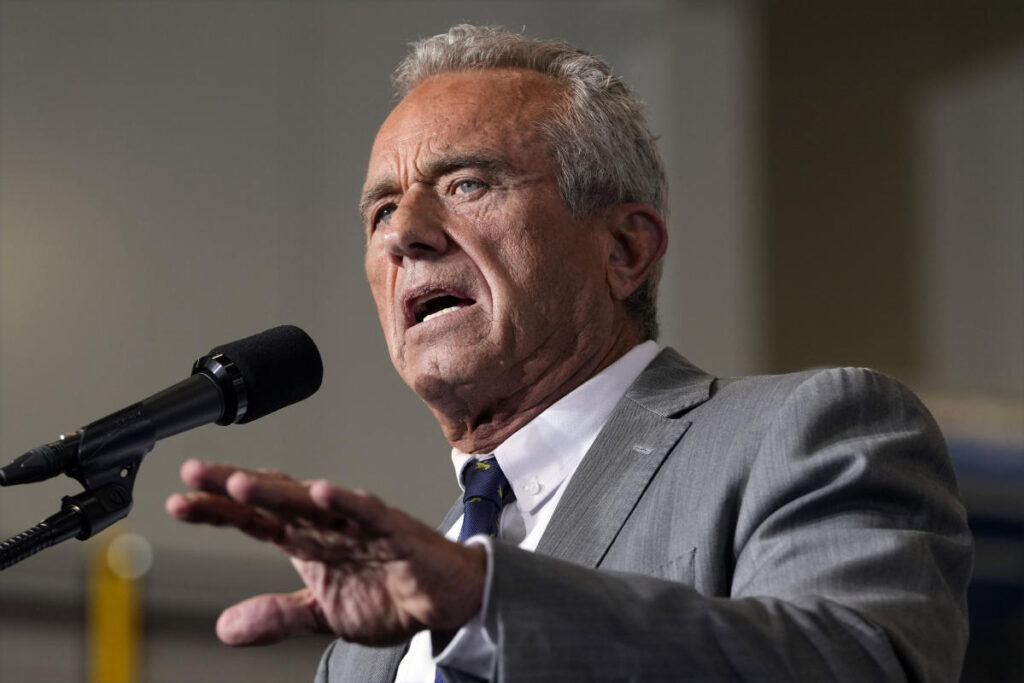Robert F. Kennedy Jr., an environmentalist and anti-vaccine activist, has hinted at playing a significant role in shaping American agricultural policy should Donald Trump regain the presidency. Kennedy, who ran for president as an independent before aligning with Trump, released a video expressing his commitment to revitalizing American agriculture and public health outside the U.S. Department of Agriculture (USDA). He criticized the current USDA dietary guidelines, claiming that corporate interests have prioritized ultraprocessed foods over natural options. Kennedy’s vision entails a transformation of agriculture in line with his stance on health and nutrition, indicating he wants to directly influence agricultural practices and policies in a potential second Trump administration.
Despite the apparent enthusiasm from Kennedy regarding his potential influence in a future Trump administration, the Trump campaign has remained noncommittal. While formal discussions regarding possible appointments have not been initiated, Trump himself has expressed admiration for Kennedy, suggesting he has valuable ideas for improving public health. Kennedy’s recent shift from an independent candidate to endorsing Trump has raised eyebrows, particularly because of his controversial positions on vaccines and other health-related issues. His endorsement could serve to enhance Trump’s appeal among anti-establishment and vaccine-skeptic voters, although public polling suggests that Kennedy’s impact on the overall electoral landscape remains uncertain.
Throughout his campaign, Kennedy has publicly stated his ambitions for a range of federal policies beyond agriculture, suggesting he would challenge established practices within public health agencies. His comments indicate a desire to reform agencies such as the CDC, FDA, and USDA, which he believes have been co-opted by industry interests. For instance, Kennedy’s background as an environmental lawyer has seen him challenge practices associated with large-scale agriculture, including the use of herbicides that are widely adopted across the farming sector. Such positions may not resonate well within traditional agricultural communities, where support often leans toward larger commercial interests rather than the regulatory approaches Kennedy advocates.
The USDA is critical in regulating and supporting agricultural practices across the United States, overseeing various facets such as animal health, food safety, and nutrition assistance programs. Kennedy’s vision for the department involves a pivot from its historically pro-large farm policies, much of which were implemented during Trump’s previous administration under the leadership of Agriculture Secretary Sonny Perdue. Observers like John Hansen of the Nebraska Farmers Union have voiced skepticism about Kennedy’s potential acceptance within the farming community, suggesting that his reputation might not be well-received among farmers who rely on established agricultural practices.
In addition to his focus on agriculture, Kennedy has indicated a broader platform aimed at overhauling the U.S. environmental and public health landscape. He has stated intentions to work on cleaning up regulatory agencies, claiming they have become mere facilitators for industries rather than serving in a truly regulatory capacity. His recent videos have targeted various federal institutions, including pledges to work with the EPA and the FDA, highlighting an expansive agenda that signals his intent to reshape health standards and food regulation significantly. Such ambitions can pose considerable resistance from established stakeholders within these agencies and industries that may oppose drastic shifts in policy.
While there is significant apprehension surrounding Kennedy’s rise in the political arena, particularly regarding public health, his ongoing commitment to promoting opinions shaped by vaccine skepticism and anti-establishment sentiments reflects a growing divide in American political discourse. His ongoing legal endeavors, including a lawsuit against news organizations regarding misinformation, reinforce his controversial standing and the challenges that come with it. As Trump and Kennedy navigate the political landscape, the implications of Kennedy’s potential role in governance could reverberate across public health and agricultural policy in the United States. With the election looming, the interplay between their tactics and the resulting public reception will be critical in determining the future direction of these vital sectors.

